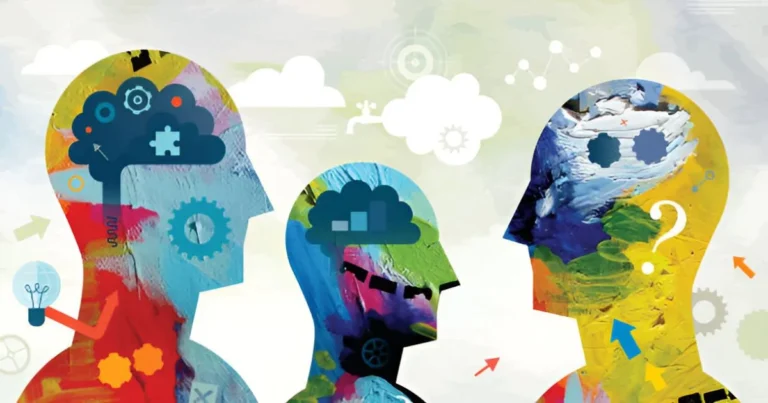The stolen identity
Jean Baudrillard, a towering figure in contemporary sociology and philosophy, left a lasting mark on the intellectual landscape with his ability to expose the often-invisible mechanisms of modern society. His 1970 work The Consumer Society remains one of his most influential and prophetic contributions. In this book, Baudrillard tackles a subject that has only grown in relevance over time: the rise of mass consumption and its profound impact on individuals and social structures.
Cultural signifiers
Far from being a simple economic critique, Baudrillard delves into the psychological and cultural dimensions of consumerism. In industrialized societies, he argues, consumer goods are no longer valued solely for their utility. They become symbols—cultural signifiers that shape our identities and govern our social interactions. According to Baudrillard, an object’s value lies less in its function and more in the image it projects or the place it occupies within a complex network of signs.
In 1970, as Western society was experiencing unprecedented economic prosperity, Baudrillard’s analysis already anticipated the excesses and distortions of advanced capitalism. Issues such as the commodification of human needs, the manipulation of desire through advertising, and the standardization of behavior resonate deeply in today’s world. More than fifty years after its publication, The Consumer Society has not lost its relevance. On the contrary, the rise of digital technologies, social media, and the surveillance economy only amplifies its message.
This dense and provocative book invites a deep reflection on our buying habits, personal aspirations, and relationship with a world dominated by accumulation and superficiality. By confronting us with our own contradictions, Baudrillard forces us to ask: are we still free individuals, or consumers trapped by our own desires?
Objects as Identity markers
In The Consumer Society, Baudrillard offers a sharp critique of how modern societies operate—where consumption is no longer just a means of satisfying practical needs, but a complex system of signs and meanings. In his view, objects have ceased to be tools; they have become social and identity markers. A car, for instance, is not merely a mode of transport—it symbolizes success, prestige, or belonging to a certain social class. This shift turns individuals into performers on a consumerist stage, where every purchase expresses a role or aspiration.
Psychologically, this system fuels an illusory quest for social and personal validation, with desires constantly renewed by advertising and marketing, never truly fulfilled. Baudrillard goes further, analyzing how this consumerist logic reshapes human relationships. Advertising, omnipresent in daily life, no longer sells just products—it sells dreams and ideals. It creates artificial needs and drives compulsive buying behaviors. This process generates a cycle of perpetual frustration, where the happiness promised by material possessions quickly dissipates, leaving a symbolic void.
By anticipating the psychological impact of this model on the collective psyche, Baudrillard sheds light on modern phenomena such as social anxiety tied to appearance, or the constant need for validation on social media. Rather than liberating individuals, consumption traps them in a cycle of alienation, where personal worth is measured by possessions.
His analysis, however, is not without criticism. While Baudrillard brilliantly illuminates the mechanisms of desire manipulation and the commodification of identity, some observers argue that his view of consumption is overly one-sided. They point out that despite its flaws, consumer culture has brought significant progress in comfort and personal choice. Nevertheless, Baudrillard’s insights remain strikingly relevant in an era where consumption has taken on unprecedented proportions through digital technologies and personal data exploitation.
Ultimately, The Consumer Society urges us to rethink the relationship between individuals and objects, questioning the extent to which we are truly free in a world where we purchase not only products but meanings.
Still relevant today: A critique that endures
The race for smart devices: Just another madness
A striking example of Baudrillard’s analysis today is the relentless pursuit of the latest smartphone models. Beneath this repeated act of consumption lies a powerful psychological drive: the need to belong and to feel validated through ownership. Consumers, often unconsciously, seek to fill identity gaps or maintain an idealized self-image. The smartphone, far more than a tool, becomes an extension of the self—a mirror reflecting social status or cultural affiliation. This mechanism of social reinforcement, carefully fueled by strategic marketing campaigns, helps explain why many feel anxious at the thought of missing out on the latest release.
Smart devices add an even more intrusive dimension to consumer psychology, marking a new stage in the logic of consumption. Voice assistants, for example, tap into our instinct for ease and immediacy, encouraging individuals to outsource more of their decisions and gradually lose control over their own buying behaviors. This growing dependency can foster feelings of helplessness, reinforcing a cycle of consumption driven by artificially generated needs.
Advertising and manipulation: Consumers held hostage
Advertising deftly exploits consumers’ psychological vulnerabilities, preying on unconscious desires and insecurities. Instead of addressing real needs, it manufactures an illusion of fleeting satisfaction, promising immediate but short-lived happiness. This dynamic fosters a spiral of frustration and dependency. For instance, products are often presented in idealized settings, triggering positive emotions tied to abstract concepts like success, love, or freedom.
The film The Joneses (2009) perfectly illustrates this psychological process: the characters manipulate their neighbors’ desires and need for social validation to drive consumption, highlighting how easily buying behavior can be influenced by emotional stimuli.
Echoes in other critical works
Baudrillard is not alone in exposing these psychological mechanisms. Books like No Logo by Naomi Klein and The Age of Surveillance Capitalism by Shoshana Zuboff delve deeper into how consumption exploits the human psyche. Klein reveals how brands infiltrate the collective imagination, cultivating an almost compulsive need to belong to a cultural tribe through objects. Zuboff, for her part, unveils how personal data collection fuels an economy where individual behaviors are predicted and manipulated, exacerbating the erosion of free will.
On the other hand, thinkers like Steven Pinker, in Enlightenment Now, adopt a more optimistic view, arguing that the abundance made possible by consumer culture can satisfy fundamental psychological needs, such as safety and comfort. This ongoing debate underscores the psychological duality of consumerism: on one hand, it soothes certain fears and desires; on the other, it fosters chronic dissatisfaction.
The psychological impact of consumption
In a society dominated by consumerism, personal identity is no longer freely constructed from within. It becomes a byproduct of the objects we own, the brands we wear, and the technologies we use. In this sense, our identity is stolen. This alienation manifests not just in the act of purchasing, but in a gradual redefinition of what it means to be oneself. People end up adopting prescribed identities, shaped by external norms—often dictated by advertising and market trends. This psychological dispossession gives rise to a kind of “false self,” a facade built to meet social expectations or project a socially valued image.
This phenomenon is especially visible in the central role of social media today. These platforms function as personal showcases, encouraging users to “sell” themselves through carefully curated photos, possessions, and experiences. However, this constant need for external validation fosters emotional dependency and creates a divide between one’s inner identity—often neglected—and one’s public persona, shaped by consumer culture. Psychologically, this can lead to a sense of meaninglessness and emotional instability, fueled by chronic dissatisfaction and a lingering feeling of incompleteness.
This process raises a fundamental question: to what extent are we still the authors of our own identity narratives? If our choices, desires, and aspirations are shaped by external forces like advertising and consumer norms, can we still speak of an authentic identity? Baudrillard urges us to examine the nature of freedom in a world where objects and symbols seem to own us more than we own them.
Still, there are ways to reclaim this stolen identity. Minimalist movements, for example, offer a break from object-dependence, promoting a return to essentials and valuing introspection and intrinsic needs. Likewise, mindfulness practices and conscious consumption provide tools to rethink our relationship with material goods and reestablish a more meaningful connection with ourselves.
In this light, the reflection on “stolen identity” highlights the urgency of resisting silent alienation and returning to an identity no longer dictated by external forces, but rooted in a personal quest for meaning and authenticity.
References
Baudrillard, J. (1970). La société de consommation. Gallimard.
Klein, N. (2000). No Logo. Actes Sud.
Pinker, S. (2018). Le triomphe des Lumières : Pourquoi la raison, la science, l’humanisme et le progrès sont porteurs d’avenir. Les Arènes.
Zuboff, S. (2020). L’âge du capitalisme de surveillance : Le combat pour un avenir humain face aux nouvelles frontières du pouvoir. Éditions Zulma.

Amine Lahhab
Television Director
Master’s Degree in Directing, École Supérieure de l’Audiovisuel (ESAV), University of Toulouse
Bachelor’s Degree in History, Hassan II University, Casablanca
DEUG in Philosophy, Hassan II University, Casablanca







